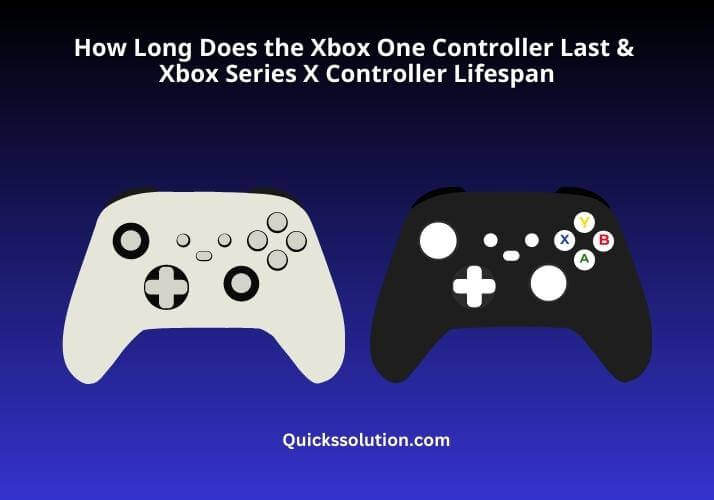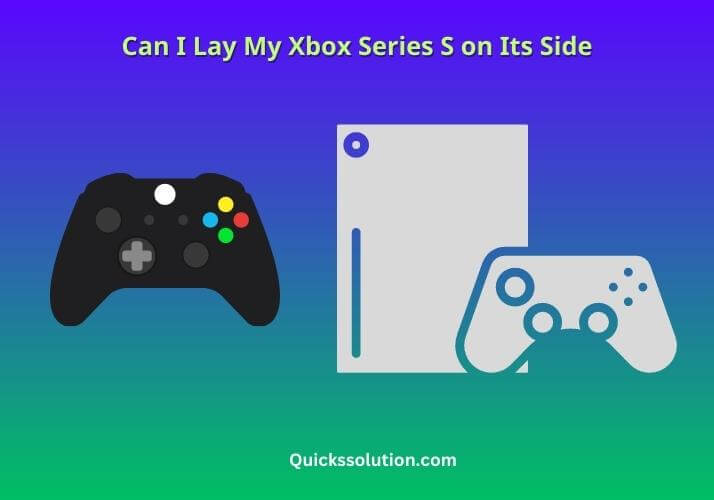Published on: August 1, 2023
Written by John Stevens / Fact-checked by Hashim Manna
The physiological impact of prolonged Xbox gaming can be profound and multifaceted, affecting several aspects of the gamer’s physical health and well-being. Overindulgence in gaming, much like any sedentary activity, is associated with a range of health issues, from eye-strain and sleep disruption to more severe conditions like obesity and cardiovascular disease.
Sedentariness, a common trait among avid gamers, is associated with an increased risk of obesity and cardiovascular health issues. Sitting for extended periods can lead to weight gain, high blood pressure, and elevated cholesterol levels. Meanwhile, eye-strain from staring at the screen for hours on end can lead to headaches, blurred vision, and dry eyes, causing significant discomfort and potential long-term vision problems.
Prolonged gaming can also lead to musculoskeletal disorders, such as repetitive strain injuries from using the controllers and poor posture from hours of gaming without proper ergonomic support. Simultaneously, the brain undergoes neuroplasticity changes due to constant exposure to the gaming environment, impacting cognitive function and possibly fostering addictive behaviors.
Sleep disruption is another concern, as the artificial light from screens can interfere with the body’s natural sleep-wake cycle, leading to insomnia and fatigue. Last but not least, excessive gaming can result in social isolation, as gamers may prioritize gaming over other social activities, affecting their interpersonal relationships and mental health. It’s a broad spectrum of potential impacts that signify the importance of moderation in gaming activities.
Era of Xbox Gaming

The rise of Xbox gaming
The Xbox gaming platform, since its introduction by Microsoft in 2001, has transformed the landscape of home entertainment. A significant part of its success hinges on captivating game narratives and the ability to connect players from across the globe, fostering a massive, devoted community.
Attributes of dedicated Xbox gamers
Xbox gamers often display dedication and focus that sets them apart. Prolonged gaming sessions are not unusual, as players strive to reach new levels, complete complex missions, or simply immerse themselves in fantastical worlds. While this commitment is laudable, it raises concerns about the potential physiological impact of prolonged xbox gaming.
Physiological Aspects Related to Gaming
Interconnection between physiology and gaming
The domain of physiology examines how organisms, organ systems, individual organs, cells, and even biomolecules carry out their functions. In the context of Xbox gaming, we look at how various physiological systems – such as visual, musculoskeletal, cardiovascular, and nervous – respond to extended exposure.
Key physiological systems and their functions in the human body
| Physiological System | Function |
| Musculoskeletal System | Provides structure, supports and protects internal organs, enables movement |
| Visual System | Allows vision, recognition, and perception of depth and color |
| Cardiovascular System | Circulates blood, transports nutrients, oxygen, hormones, and cells |
| Nervous System | Processes and transmits information, coordinates actions |
Sitting Still: Musculoskeletal Consequences of Prolonged Xbox Gaming
Link between gaming and postural problems
The sedentary nature of gaming can lead to various musculoskeletal problems. Hours of sitting in the same position often result in poor posture, which may lead to discomfort, pain, and long-term complications. Conditions like gamer’s thumb (De Quervain’s syndrome) or carpal tunnel syndrome are common among gamers due to repetitive controller use.
Common musculoskeletal problems and their symptoms
| Problem | Symptoms |
| Gamer’s thumb | Pain, swelling, and stiffness at the base of the thumb |
| Carpal Tunnel Syndrome | Tingling, numbness, and pain in the hand |
| Poor Posture | Back, neck, and shoulder pain |
Keep an Eye Out: Visual Consequences of Extended Xbox Gameplay
Risk of digital eye strain
Staring at the screen for extended periods can lead to digital eye strain, characterized by dryness, irritation, blurred vision, and headaches. This strain is often due to the high visual demands of gaming, such as tracking fast-moving objects and reacting to quick changes in lighting or color.
Proposed eye exercises to alleviate strain
To counteract the visual strain, gamers are advised to practice eye exercises during breaks. These include focusing on distant objects, following the 20-20-20 rule (looking at something 20 feet away every 20 minutes for 20 seconds), and performing eye rolls to ease muscle tension.
Heart and Game: Cardiovascular Considerations in Long Gaming Sessions
Association between prolonged gaming and cardiovascular health
Extended periods of inactivity, like during a gaming marathon, can impact cardiovascular health. Sedentary behavior is linked to an increased risk of heart disease and other cardiovascular issues. Gamers often report rapid heart rate during intense gaming sessions, hinting at potential stress on the cardiovascular system.
Suggestions for promoting cardiovascular wellbeing during gameplay
Encouraging movement during gaming sessions can mitigate some cardiovascular risks. Simple steps such as standing up and moving around during game intervals, doing light exercises, or even using standing desks can help.
Game Brain: Neurological Outcomes of Long-Term Xbox Gaming
Impact of gaming on neural pathways
Prolonged Xbox gaming can influence the structure and function of the brain. For instance, gaming can stimulate the reward system, resulting in changes in neural pathways that might resemble those seen in addiction. Over time, this can make gamers more susceptible to cravings and make it harder to stop playing.
Influence on cognitive functions
Prolonged gaming can also impact cognitive function. While certain benefits like improved hand-eye coordination and enhanced problem-solving abilities are often cited, excessive gaming might impair social, memory, and attention-related cognitive functions.
The Gamer’s Dilemma: Balancing Xbox Gaming and Health
Constructive gaming habits
Developing healthy gaming habits is crucial to counteract the potential negative effects of prolonged gaming. This could include taking regular breaks, using ergonomic chairs and controllers, practicing eye exercises, and engaging in physical activity outside of gaming sessions.
Setting boundaries for gaming duration
Setting limits on gaming duration is a significant step towards responsible gaming. This can include setting a daily or weekly time limit, avoiding gaming late into the night, or scheduling gaming-free days to provide the body and mind a chance to rest and recover.
In the Lab: Research and Prospects on Gaming’s Physiological Impact
Overview of recent studies
The physiological impact of prolonged xbox gaming has become a hot topic in scientific research. Recent studies are investigating various aspects, from the impact of gaming on vision to its influence on cognitive functions and the development of physical health problems.
Summary of prominent studies and their key findings
| Study | Key Findings |
| “The Impact of Video Games on the Human Brain” | Gaming can stimulate the brain’s reward system, causing structural changes similar to addiction |
| “Health Implications of Prolonged Sitting and Gaming” | Extended periods of sitting during gaming can increase the risk of cardiovascular issues |
| “Video Games and Vision: The Possible Impact” | Prolonged gaming can lead to digital eye strain and potential vision problems |
Preventing the Negative Impacts of Prolonged Gaming

Keeping Your Brain Healthy
Wondering how to keep your noggin in tip-top shape while enjoying your favorite Xbox games? It’s all about balance. Limiting gaming hours, taking regular breaks, and engaging in other mentally stimulating activities can keep your brain healthy. And let’s not forget about a good night’s sleep – essential for a healthy brain!
Protecting Your Eyes
Did you know that the 20-20-20 rule can help reduce digital eye strain? Every 20 minutes, take a 20-second break and look at something 20 feet away. Additionally, using gaming glasses that filter out blue light can help protect your eyes.
Maintaining Musculoskeletal Health
Physical activity is a must to counteract the effects of prolonged sitting. Regular breaks to stretch and move around can help prevent musculoskeletal issues. Additionally, maintaining proper posture and using ergonomic gaming accessories can also make a big difference.
FAQs
What Are the Health Effects of Too Much Gaming?
Too much gaming can lead to numerous health issues. These can range from physical problems like digital eye strain, musculoskeletal issues, and potential cardiovascular risk to mental concerns such as impact on neural pathways, and cognitive functions.
How Can Video Games Affect Your Health?
Video games, when played excessively, can affect your health both physically and mentally. Physical impacts can include eye strain, postural problems, and sedentary behavior risks. Mental effects can range from changes in neural pathways to possible cognitive function impacts.
Do Video Games Cause Mental Health Issues?
While not all gamers will experience mental health issues, some studies suggest a possible link between excessive gaming and certain mental health concerns, such as changes similar to addiction in neural pathways and potential impairments in social, memory, and attention-related cognitive functions.
Are Video Games Good for Your Mental Health?
Video games can potentially have positive effects on mental health, such as improved hand-eye coordination and enhanced problem-solving abilities. But it’s also necessary to balance gaming with other activities to avoid the risks associated with prolonged gaming.
How Does Gaming Affect Mental Health?
Prolonged gaming can affect mental health in various ways. It can stimulate the brain’s reward system, leading to changes in neural pathways. Over time, this might make gamers more susceptible to cravings and make it harder to stop playing.
Do Video Games Help with Mental Health?
Certain studies suggest that video games can have beneficial effects on mental health, such as stress relief and improved mood. However, excessive gaming can potentially lead to negative impacts, so it’s crucial to maintain balance.
What Are the Negative Effects of Video Games?
The negative effects of video games can include physical health issues such as digital eye strain and musculoskeletal problems, as well as potential mental health concerns, such as changes in neural pathways and possible cognitive function impacts.
References
- The health effects of too much gaming – Harvard Health
- Short-Term and Long-Term Effects of Playing Video Games – News-Medical.net
While Xbox gaming offers hours of entertainment and can foster valuable skills, it’s essential to be aware of and mitigate the potential physiological impact of prolonged play. Gaming should be part of a balanced lifestyle, not at the expense of health. With responsible habits and a proactive approach to health, gamers can continue to enjoy their favorite pastime while also taking care of their wellbeing.
Read more:



